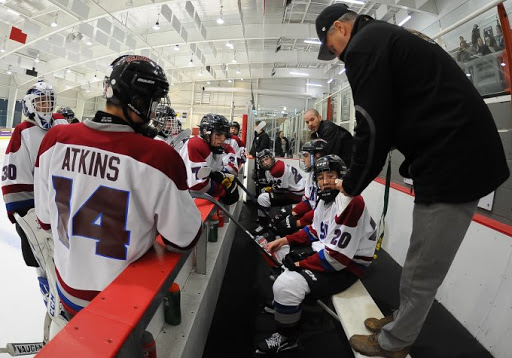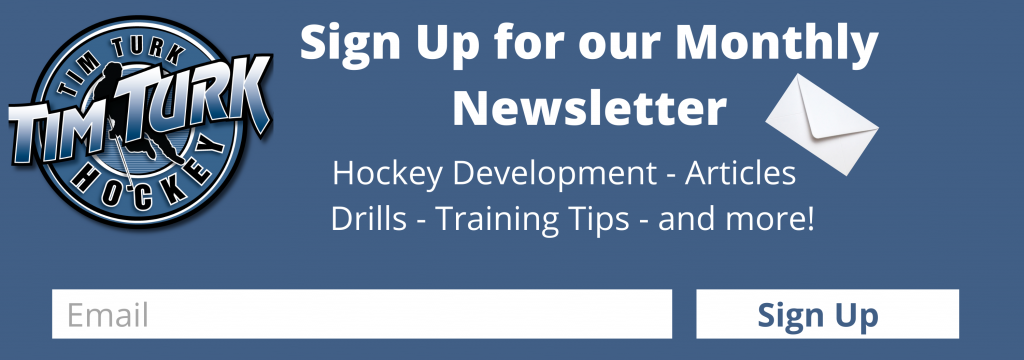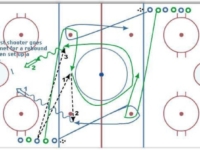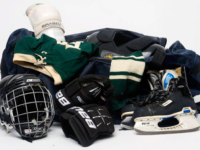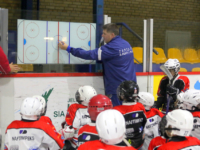Let’s just start off by acknowledging this: hockey coaching is hard, very hard. This applies to coaching at any level, in any sport, and of any age group. Coaches do not get enough praise, especially in youth hockey where most work a regular job and dedicate their evenings and weekends to the kids. We hear you, we understand, and we appreciate it! With that being said, coaches are not perfect either! Hockey is a difficult sport to coach, especially for youths. Children and teenagers develop physically and mentally at different speeds. Most of the time it’s hard to keep their attention, and on top of everything, you also have vocal parents to contend with. We get it! Coaching hockey is difficult! So let’s take a look at some mistakes that youth hockey coaches should really just try their best to avoid.
Do Not Be Overly Critical of Your Players
Does this sound obvious? Coaches should be as much a support system as they are a teacher. It is always underestimated just how important sports coaches are in the development of children. They provide an example of both leadership and sportsmanship, and have a direct impact on players’ confidence. So if one of your players makes a mistake on the ice, don’t be critical of it. Support them because we can guarantee that the player will already feel awful about whatever their mistake was. Nothing is worse for a player than feeling they have lost their coach’s trust, so if someone makes a mistake, learn from it and show them how to be better the next time that situation arises.
Teach Them Sportsmanship
It is perhaps the single most important thing that children can learn from playing in competitive sports. Sportsmanship and respecting your opponent is something that stays with children even as they grow up into adults. Skills and winning are wonderful, but sportsmanship will earn you the respect of others no matter what you do in life. So provide that example for your kids and make sure that the opponent and the game are respected at all times. If you don’t, then player behaviour will reflect badly on the coach, which is the last thing you need to deal with behind the bench.
Do Not Give In To Parents
Hockey parents are a unique breed, aren’t they? They can be cheerfully smiling one second and then screaming bloody murder over the glass, the next. There is something about youth hockey that just gets the parents overly excited. Being passionate about their child’s performance on the ice is one thing, but when some parents go further and try to give you pointers or ask for more ice time, that is crossing the line. There is a long history of youth hockey coaches being bullied by parents into giving their child more ice time or different linemates. As a coach, you cannot give into their demands because it will appear as favoritism and can certainly lead you being reported to the league.
Do Not Favour Your Own Child
This mistake is related to the previous one, but it does hit a little closer to home. There will be times where you end up coaching your own child’s team. No matter how you feel about it, there will also always be coaches who give preferential treatment to their own child. Look, even if your child is a superstar, you simply cannot give them more ice time or anything like that. It is just another reason to report you to the league and can be seen as a fairly obvious conflict of interest as a coach. What you may not realize is that it also isolates your own child and puts them in a negative light amongst their teammates. It is admirable that you are dedicating the time to coach your child’s team, but on the ice and in the dressing room, you have to treat them as just another player on the team.
Don’t Run a Boring Practice
This applies to coaches at any level, but particularly youth hockey coaches where children already struggle with their attention spans. Don’t be that coach that just runs the same drills and practices every time. The kids will grow to not look forward to practice and even might resent them after a while. Children like to be challenged so mix up your drills and try to provide a different ending to the practice each time. Bring in a specialty trainer or guest coach. Spice up your scrimmages by making all the players shoot the opposite hand or all play with goalie sticks. It is these creative things that will make things enjoyable for the kids and break up the monotony of practices, especially when they happen several times every week.
Always be on Time!
Within reason of course, nobody will blame you if you are late getting to a practice if you go directly from work. But aside from that, there are few things that disorient players than suiting up with no coach. Like we said, you are the leadership and authority figure of the team. As you go, the players go too. Showing up on time for practices and games shows the players that you want to be there as much as they do, and that you are fully dedicated to them during that time. It also leads back to setting a good example and teaching these kids life skills that they can apply to any area of their lives outside of the rink.
Have Some Fun, Coach!
If you aren’t having fun, the kids will sense it. Be aware that being at the rink is one of the most memorable parts of childhood and no child needs that memory tarnished by a grumpy coach. When you are on the ice with the kids, have some fun and show them how much you enjoy the game as well. Relate to them and get to know them on a personal level. You will always be their coach but that does not mean you can’t be their friend as well!


